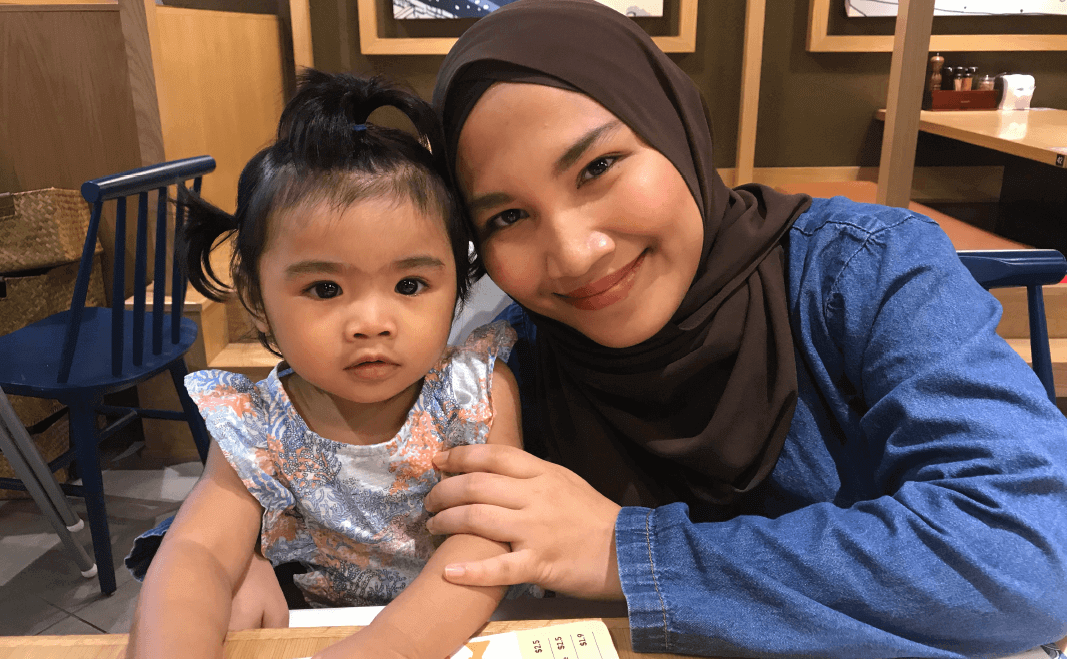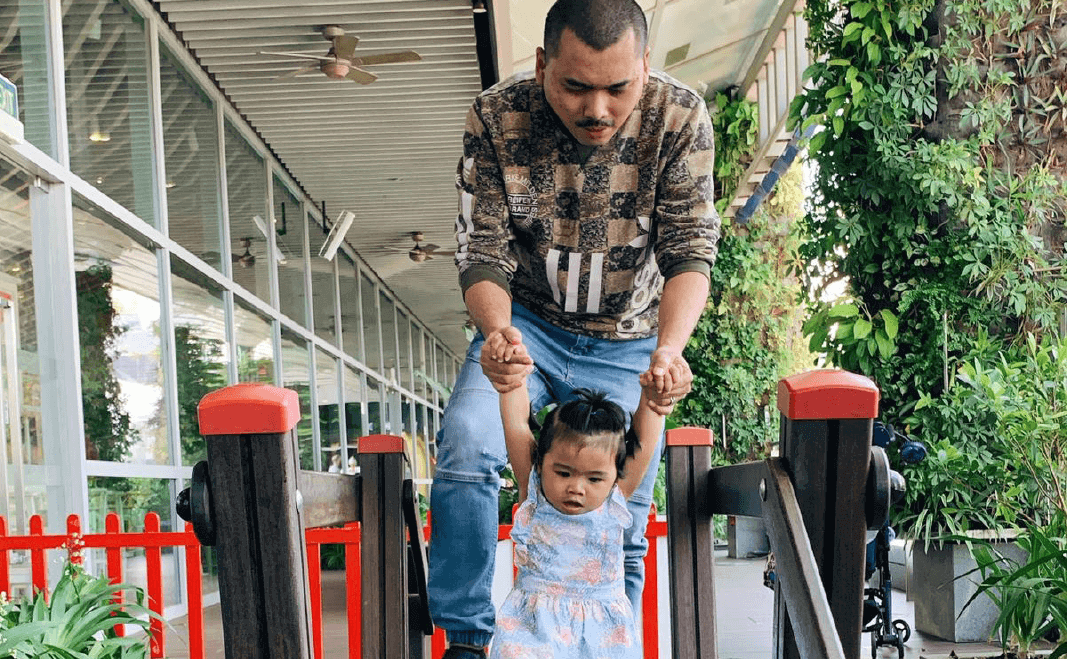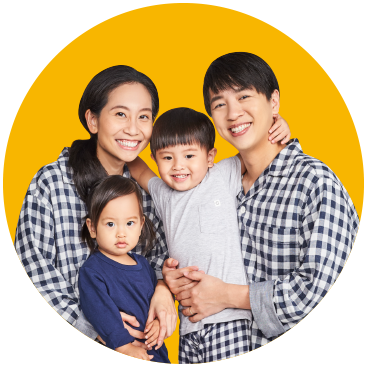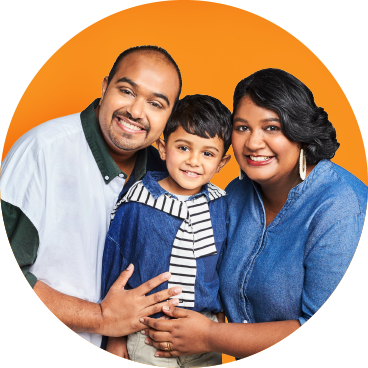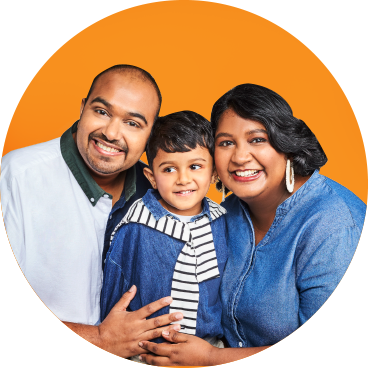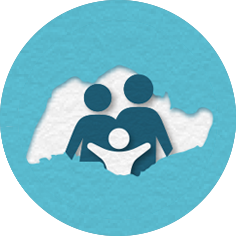F or Khairul Ikhsan bin Muhamad and Siti Raudhah binte Mohd Yasin, family gatherings are always lively affairs. On special occasions, such as when Khairul’s sister visited from Melbourne, you might even find up to 15 members of the family staying together under the same roof just to maximise bonding time. Both husband and wife love their large extended families. When they got married, they naturally wanted to create a warm and loving home together as well. “We each have three older siblings. So we wanted to have a minimum of two children. It’s nice to have a house filled with laughter,” says 33-year-old banking associate Raudhah.
Fond of children, they were overjoyed when they welcomed their baby girl Safiya Imani in May 2018. But as first-time parents, they faced struggles too. The challenge of juggling family and work commitments put their family expansion plans on hold. “We realised that having a big family many years ago is different from what it is today. There are a lot of things to consider such as the demands of our jobs. We wanted to pace ourselves,” says Khairul, a 34-year-old special education teacher.
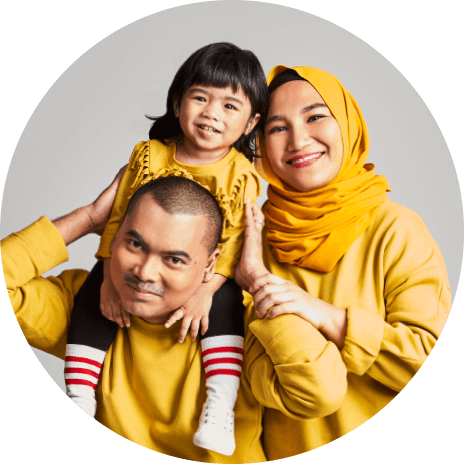
It was not easy as I want to achieve my goals and move up the corporate ladder. At the same time, I wanted to build a family".
Raudhah on work-life harmonyFinding Work-life Harmony
Raudhah started her motherhood journey with mild postnatal depression: “I wanted to do everything on my own, but I couldn’t and felt very overwhelmed. There were moments during the first month after giving birth when I just wanted to be alone and cried.” Adapting to her new role as a working mother and her own career aspirations added to the pressure. “It was not easy as I want to achieve my goals and move up the corporate ladder. At the same time, I wanted to build a family,” she says. Financial planning was another concern for the new family. “We don’t really want to cut back on things we love such as travel,” says Khairul. “At first, I thought the CDA (Child Development Account) and baby bonus was quite a big sum, but family members and colleagues told me it would not last the child till kindergarten. We realised we needed to have more nest money to last beyond those years.”
Another key consideration: finding time to bond with their young daughter. For instance, by the time Raudhah got home from work, she barely had an hour with Safiya before bedtime and wanted to devote this time to her. Nurturing Safiya to realise her full potential was a priority as well. “Coming from the education sector and being a special education teacher, I always look out for my child’s developmental milestones. We want to make sure she hits all the milestones,” stresses Khairul.
One unexpected takeaway during this stressful period was the strong support the couple received from family and colleagues. Their supportive workplaces have also eased their load.
It Takes A Village
One unexpected takeaway during this stressful period was the strong support the couple received from family and colleagues. “My mum lives within 5km from our home. She came to my house almost every weekday from 8am to 3pm when I was on maternity leave so I’d have time to rest, have a quick shower and pump milk” recalls Raudhah. When Raudhah returned to work, the couple’s parents readily took on the role as key caregivers. Her mother now takes care of Safiya on most weekdays until Khairul finishes work around 3pm. Khairul’s sister-in-law and brother-in-law also help on days when Raudhah’s diabetic mother is unwell or has a doctor’s appointment. Khairul’s parents look after Safiya once a week, sometimes even sleeping over at their place to give the couple time for date nights.
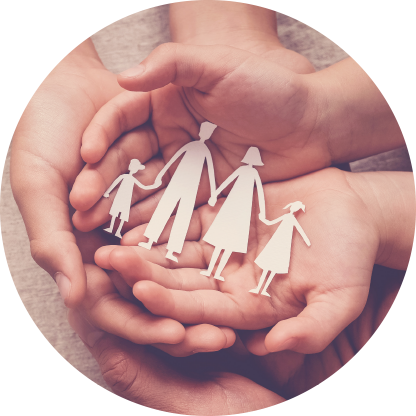
I am surrounded by supportive colleagues who have children, so we understand one another and cover for one another. These are the little things that count. We know that we are not alone".
Khairul, on his supportive colleaguesTheir supportive workplaces have also eased their load. “I am surrounded by supportive colleagues who have children, so we understand one another and cover for one another,” Khairul says. This strong support network made a world of difference when Safiya came down with the flu in December 2019. “In the middle of the night, my sister-in-law and brother-in-law who dote on her swung by to visit her and helped to put cold compress for her fever,” he recalls. When Safiya’s condition deteriorated and she was hospitalised for pneumonia over the New Year period, Khairul’s sister also helped to clean their house and pack necessities to take to them in the hospital. “These are the little things that count. We know that we are not alone,” says Raudhah.
Multiplying Joy
The overwhelming support has not only deeply touched the couple, but also empowered them to bring forward their plans to have a second child. They were further motivated when they noticed a change in their daughter, who is starting to crave more social interaction and companionship. “She used to be okay playing alone. But recently, we noticed she has been standing behind the baby gate in the living room while we are having dinner in the kitchen and asking us to play with her,” says Raudhah. “She will take her toys and throw them across the baby gate. That’s a sign that she wants attention,” adds Khairul. “We feel bad about leaving her alone. But we also realise that coming back from work, dinnertime is when we communicate and talk about our day. We also want to have our couple-time,” he says, adding that they have decided to try for another child.
Beyond giving them more couple-time, having a second child might also give Safiya the social stimulation she needs. “We see that she’s playful, but she doesn’t have kids around her age. Our nieces are all grown up. She needs someone her age. She also needs to know how to share things,” he adds. Speaking from personal experience, Khairul says: “I’m 9 to 10 years younger than my sisters. That is like another generation. My three sisters have a very close age gap – they are one or two years apart. I like the fact that they grew up together and like the bond that they had. I want that for my children.”
Bouncing back from their challenging period, Raudhah and Khairul value family support more than ever. They are certain that Safiya should have the same tight-knit families they do. “When major events come up, who are you going to depend on? It’s your family. My brother recently got married, and all of us chipped in whatever way we could. These are the little things that will matter when they grow up,” says Raudhah. “If we have another child, one day when we pass on, they will have each other and won’t be alone.”
















